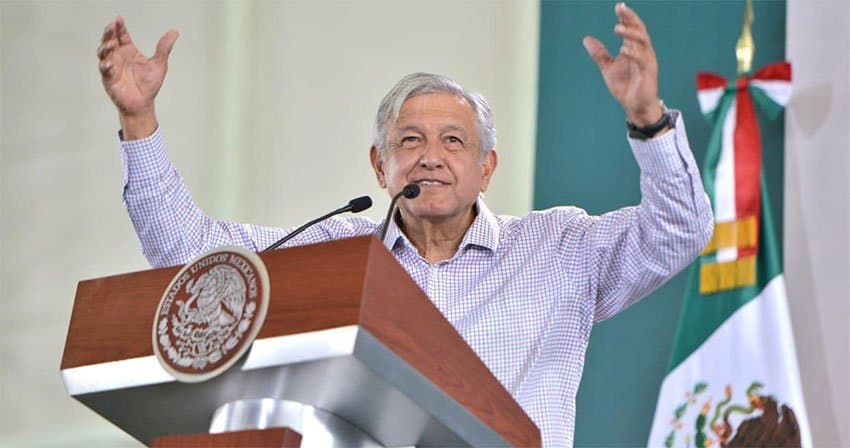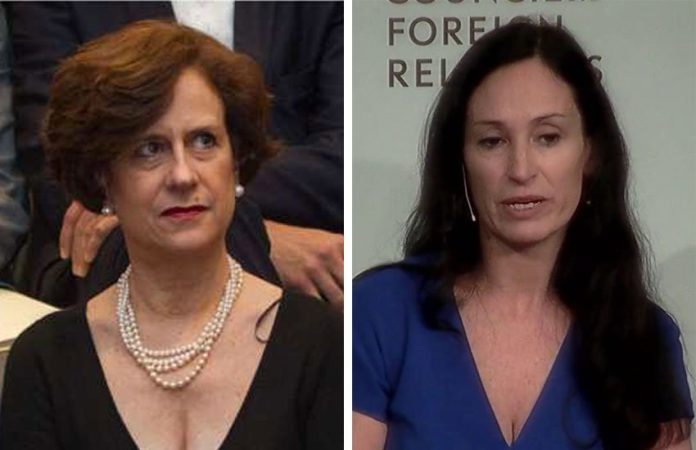Two political analysts have taken aim at President López Obrador, separately accusing him of pursuing improvised public policies “guided by ideological stubbornness,” and dismantling democracy.
Political scientist and columnist Denise Dresser told the newspaper El Financiero that the López Obrador-led administration is generating economic uncertainty with its seemingly ad-lib approach to policy formation.
“Uncertainty comes from public policies that are announced without evidence, that seem improvised, that seem guided by ideological stubbornness . . .” she said.
Dresser charged that it isn’t clear how successful some of the government’s biggest initiatives will be, referring specifically to the US $5.5-billion bailout of the state oil company, the Yucatán peninsula Maya Train project and the plan to convert the Santa Lucía Air Force Base for commercial aviation use.
“We don’t know what is going to happen with the supposed rescue of Pemex, if a responsible and balanced budget will be able to be maintained, if the Maya Train, Santa Lucía and [other] infrastructure projects are going to be Keynesian growth triggers or not, if the assessments of the rating agencies are going to have a bearing on investment and hence on growth,” she said.
“That’s what is generating this climate of uncertainty and we’re not going to do well if this continues for a long time because there are too many question marks with respect to future economic prospects,” Dresser added.
With regard to the Santa Lucía project, the analyst said “we don’t have a cost-benefit analysis [or] an environmental impact statement,” adding that it is unknown how long the airport is intended to operate and whether having three airports in simultaneous use is even possible.
As an alternative to the Mexico City International Airport – which López Obrador announced he was canceling even before he became president – the government is planning to rehabilitate the existing Mexico City airport and that in Toluca in addition to turning the México state air force base into a commercial airport.
Alexendre de Juniac, CEO of the International Air Transport Association (IATA), said last month that operating three airports within close proximity to each other in Mexico City and México state will be “complex” and “challenging,” while Communications and Transportation Secretary Javier Jiménez Espriú conceded that the government hasn’t yet provided detailed information about its plan at Santa Lucía.
Meanwhile, in an opinion piece published yesterday by Bloomberg, a senior fellow for Latin American studies at the Council on Foreign Relations in New York contended that López Obrador “is systematically concentrating power in an already strong executive.”
Shannon K. O’Neil wrote that from the beginning of his administration the president “has undermined democratic norms and checks and balances,” often choosing “to work outside the formal legislative process,” even though the coalition led by his Morena party has a majority in both houses of Congress.

She pointed to López Obrador’s “dubious public referendums,” his move to slash the salaries of judges and “take control of court officials’ evaluations and promotions” as well as his nominations of the “wife of a favored contractor and party loyalists” to the Supreme Court as evidence of the president’s undemocratic conduct.
O’Neil also said that AMLO, as the president is widely known, has attacked “the islands of independence within the government” by cutting the budgets of “the electoral institute, the transparency agency and many sectoral regulators.”
In addition, López Obrador and “his political allies are using the bully pulpit, congressional inquiries and the tax authority to go after commissioners who have dared to question his methods,” she contended.
As he has pursued what O’Neil describes as a “power grab,” López Obrador has maintained record approval ratings, with two recent polls showing that around 80% of Mexicans believe he is doing a good job as president.
That support gives AMLO “the domestic room to push forward” while “a decimated political opposition has yet to regroup,” the analyst said.
O’Neil argued that López Obrador is seeking to consolidate his power by sacrificing the previous government’s education reform “to gain the loyalty” of the CNTE teachers’ union and by “building a parallel labor confederation to challenge the Mexican Workers Confederation,” which has long supported Mexico’s once omnipotent political force, the Institutional Revolutionary Party (PRI).
Guaranteed prices for farmers and welfare handouts to the masses are also part of the president’s strategy to build his power base, the analyst contended, adding that “he’s even reached out to the military by handing over national security to a militarized national guard” and allowing the armed forces to generate their own revenue through the construction and operation of the Santa Lucía airport and other real estate.
“AMLO’s calculated strategy isn’t a new Mexican playbook,” O’Neil wrote.
“It harkens back to the PRI’s heyday, when the party maintained economic and political control of businesses, labor, the countryside and any semblance of civil society.”
She concluded by saying that in the end it will be money that will allow López Obrador to succeed or to fail and that access to the revenue he needs to shore up his political support could be hard to come by due to declining energy production and increasing government costs.
“Even with the destruction of democratic counterweights, vote-getting patronage networks require financial glue. With enough funds, he can solidify his growing political base for years to come. Without money his star will fade, as financial crises rarely treat even the most popular of politicians well.”
Source: El Financiero (sp), Bloomberg (en)
